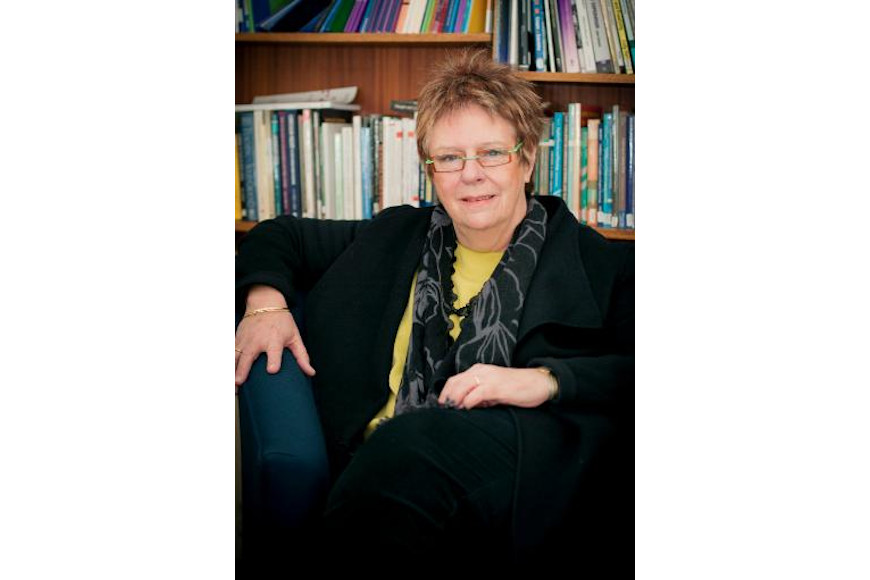Durban University of Technology’s (DUT’s) Centre for Excellence in Learning and Teaching (CELT) hosted a Scholarship of Teaching and Learning (SoTL) webinar which explored and researched various aspects of higher education learning, on MicrThe Programme coordinator was CELT’s Nalini Chitanand, Academic Development Practitioner.
The guest presenter was Emeritus Professor Chrissie Boughey, who is from Rhodes University and has more than 25 years’ experience of working in teaching and learning in South Africa’s higher education. She moved to Rhodes University from the University of Zululand in 1999 to take up a position as the Director of Academic Development. She was later promoted to the position of Dean: Teaching and Learning and ended her career as Deputy Vice- Chancellor: Academic. She now occupies a 50% position as a full research professor and continues to research and supervise.
Giving more insight into the webinar, SoTL Programme Coordinator, Ms Nalini Chitanand, said: “In designing SoTL inquiries, the kinds of questions we should ask for our contexts and the relevant and appropriate methodological and theoretical tools are important. With this in mind this SoTL webinar will focus on what kind of research do we need and how can we do it.”
Prof Boughey’s presentation drew on a large piece of work recently conducted under the auspices of the SARChI Chair in Teaching and Learning which involved a study of research focused on the Scholarship of Teaching and Learning (SoTL) over the past ten years. The presentation also drew on a framework which argues for the need for research that draws on a series of theoretical lens to explore phenomena in the teaching and learning context.
Delving more about her presentation on enhancing the scholarship of teaching and learning in South African Higher Education, Prof Boughey indicated that in South Africa, SoTL has a long history going back to the 1980s, and that much of that work has been problematised.
She relayed that the problem is that a lot of SoTL work in South Africa is ‘story-telling’ and ‘show and tell’ and according to Shay (2012), in educational development in RSA, knowledge is developed ’by reference to a particular’.
“Academic teachers identify a problem (a particular) and investigate it. The problems are heavily contextualised – they are shaped by the discipline, the institution, the particular type of student and so on. Investigations produce experiential knowledge, and sometimes, this knowledge is then proceduralised into a set of ‘best practices’. We then teach this proceduralised knowledge in PGDip and other programmes as is,” she said.
Prof Boughey then spoke on work in the sociology of knowledge to identify what needs to be done, more specifically, she drew on the work of Bernstein (2000) and his identification of hierarchical and horizontal knowledge structures.She explained that in a hierarchical structure, knowledge is built by drawing on observations and measurements in order to build ever more overarching theories and principles to account for what is seen empirically.
“If there are gaps in principles and theories at the bottom of the pyramid, students cannot proceed. Hierarchical structures are typical of the natural and numerical sciences,” she said.
Prof Boughey conveyed that on a horizontal structure, saying that researchers draw on any number of theoretical lenses to look at objects of interest.
“These lenses result in the development of different ‘languages of description’. A horizontal structure is typical of the arts and social sciences and SoTL is located in the social sciences. So, if we follow Shay, SoTL needs to focus on using different theories to look at problems, eventually, we will be able to reconceptualise the problems again. The ability to do this will allow us to conduct the kind of research that is needed in a context of transformation,” she said.
She relayed that it becomes necessary to explain why black students are doing less well than their white peers, and that any number of theories can be used to do this.However, she stressed that not all theories are equal, it depends on how one understands teaching and learning and success.
Prof Boughey gave insight on the continuum of learning theories (Boughey & McKenna, 2021), the model of the student as a decontextualised learner and the model of the student as a social being.
She then explained what has been happening in South Africa, saying that SoTL researchers have drawn on a number of theories to look at problems in Higher Education. She delved into conceptualising what researchers need to do.
“Conceptualising what we need to do, we need to bring different theoretical lens to bear on problems (the horizontal), and we need to produce ever more overarching understandings of a problem (the hierarchical). Importantly, we need to open the way for alternative accounts of ‘what is’ as we do this in the form of indigenous knowledges. So, to go back to the student performance problem, Black people have been denied access to education historically Black learners are not socialised into dominant forms of knowledge and knowing, they arrive at school unprepared. They are not supported in school, teachers themselves do not have firm command of the theories and principles themselves and students arrive at universities underprepared,” she said.
Prof Boughey conveyed that researchers needed to avoid research that is data heavy and theory light. She stressed that a way forward for DUT is to look at the identification of theories, saying that design needs to flow from theory and there should be teams working on problems together and support given to each other to reconceptualise them.
The webinar ended with a robust question and answer session followed by the vote of thanks.
Pictured: Emeritus Professor Chrissie Boughey (Google Images).
Waheeda Peters

